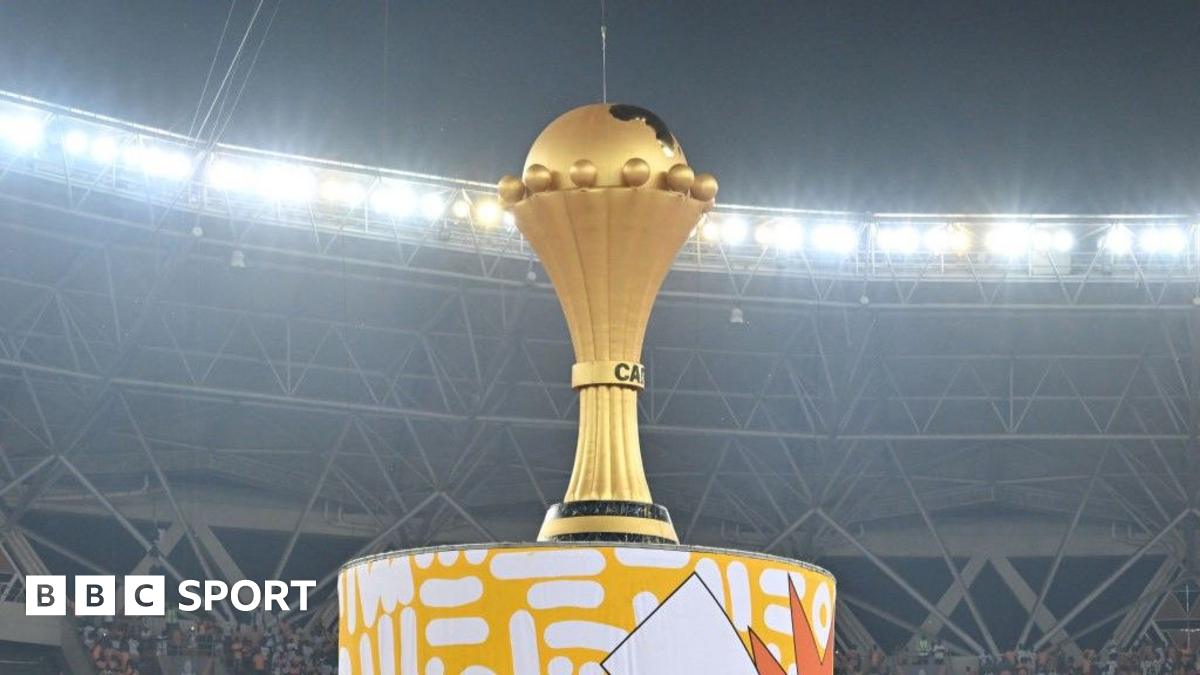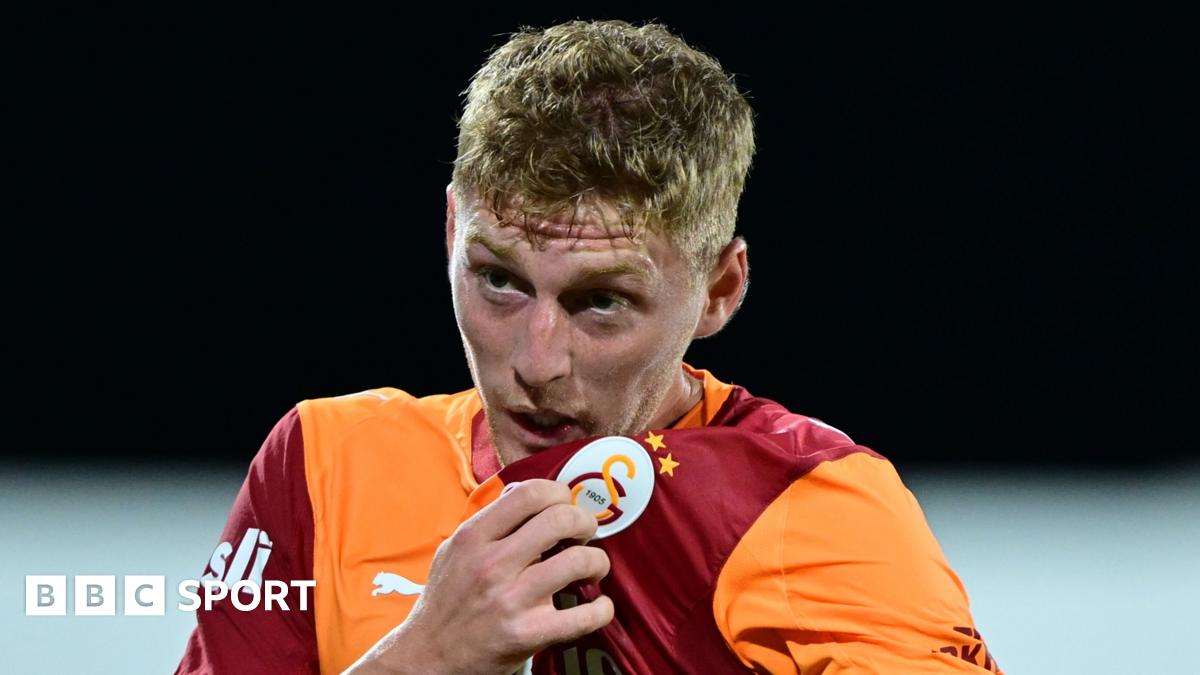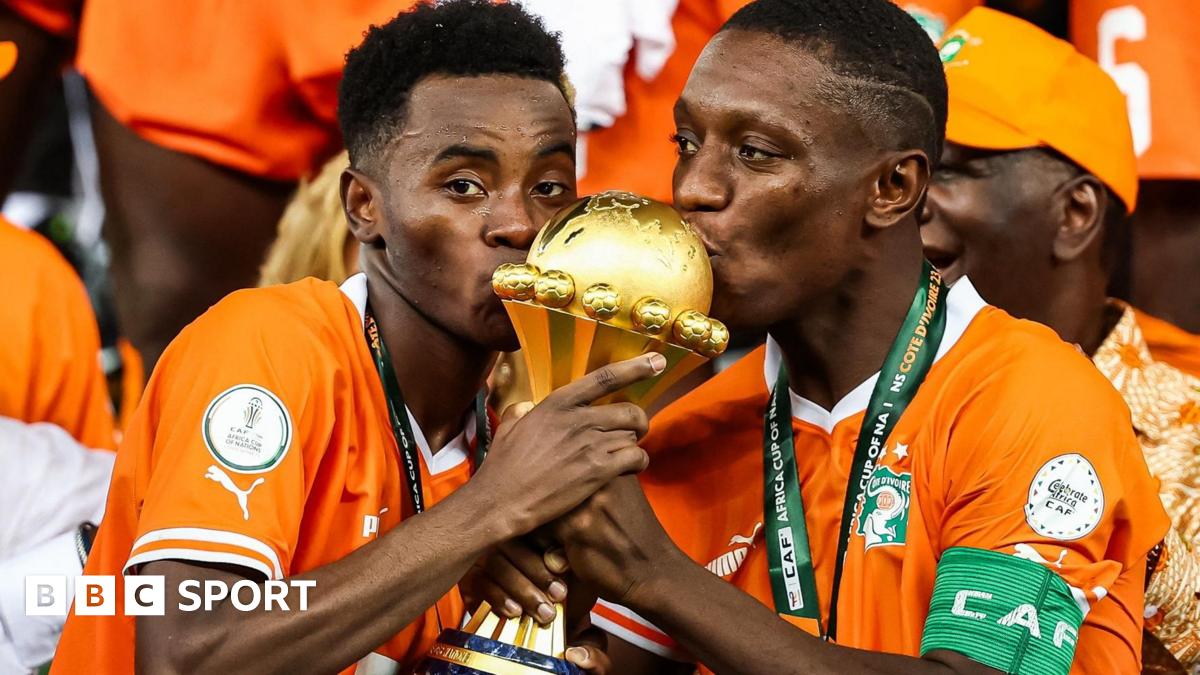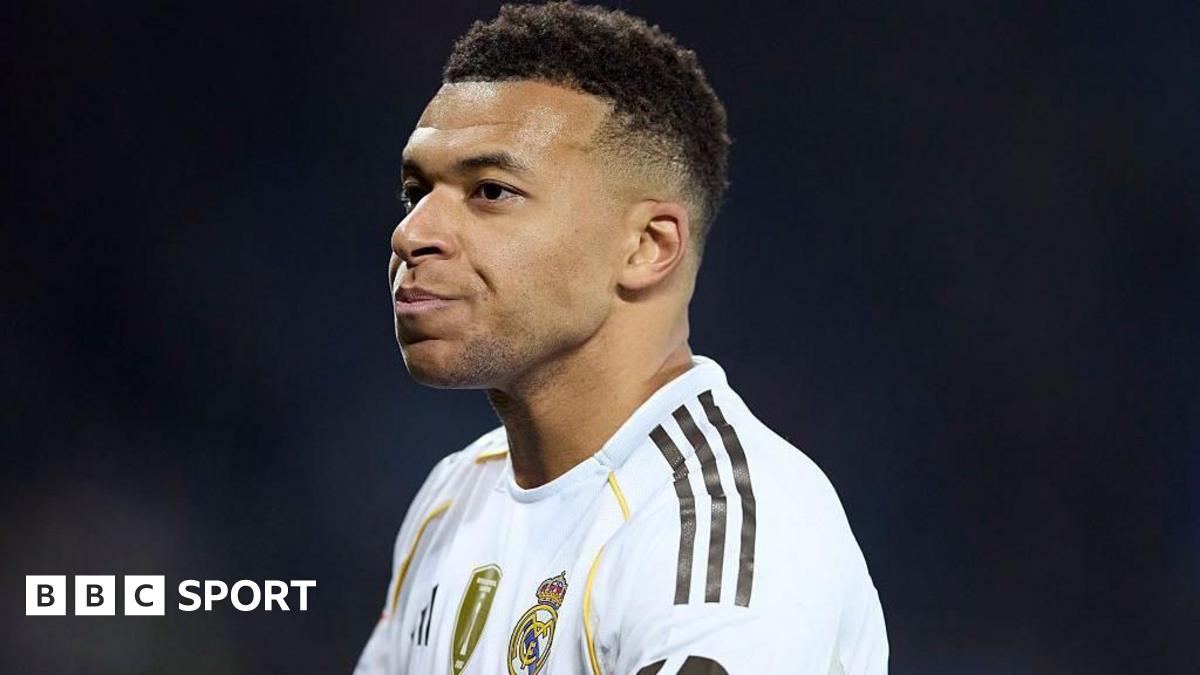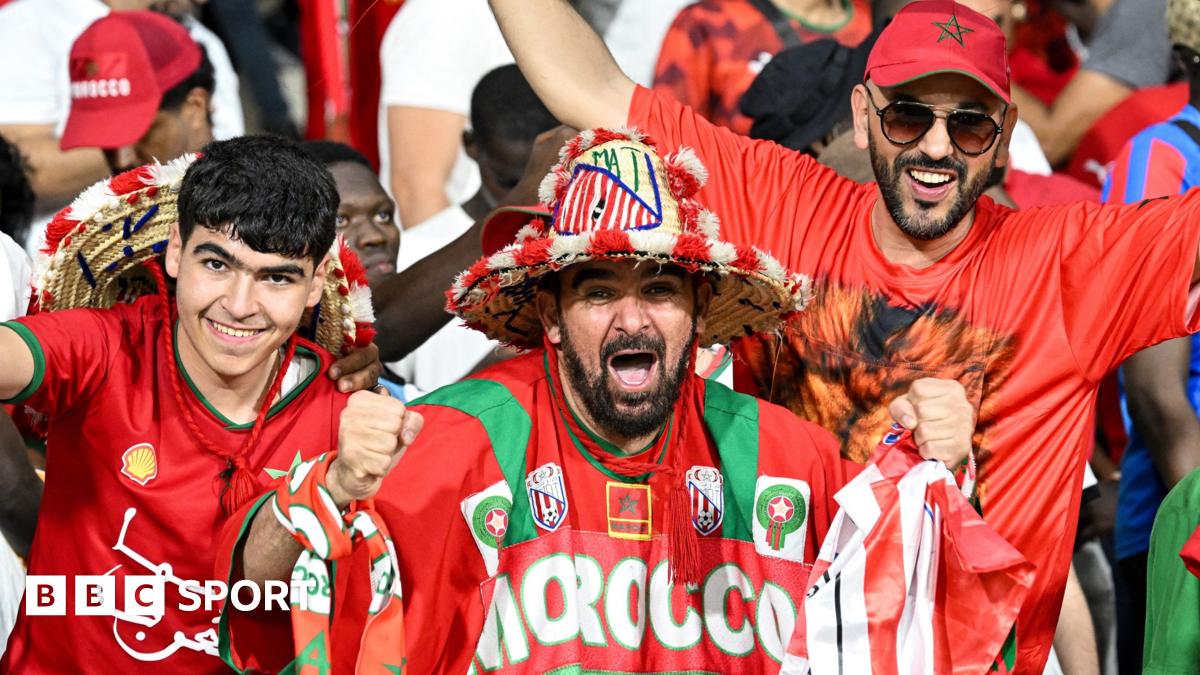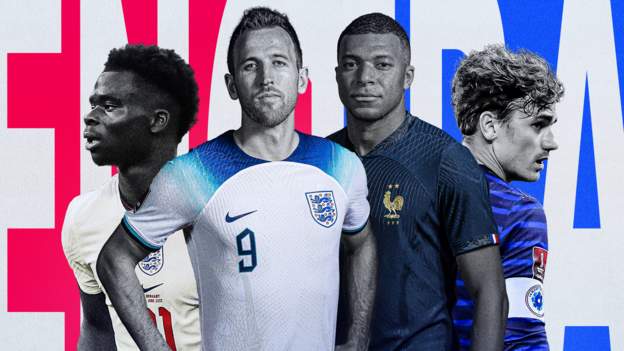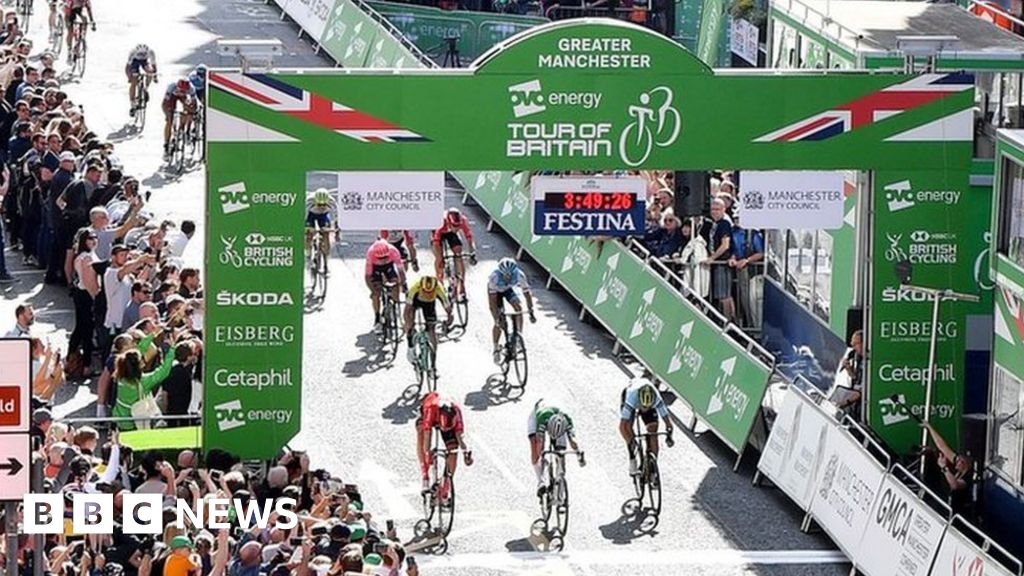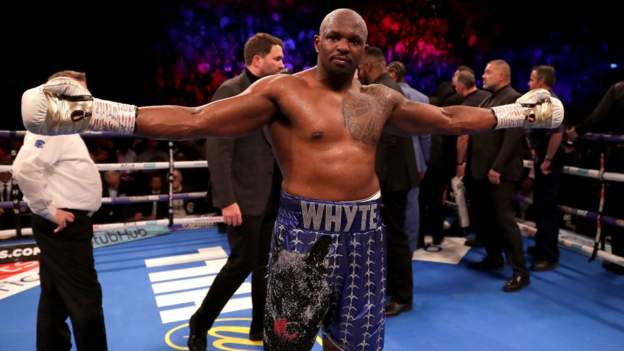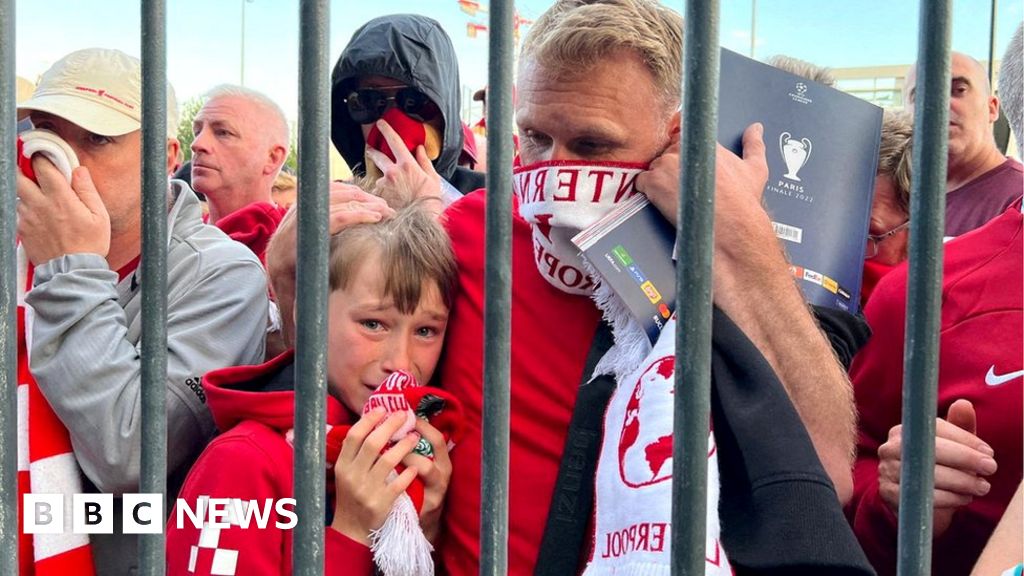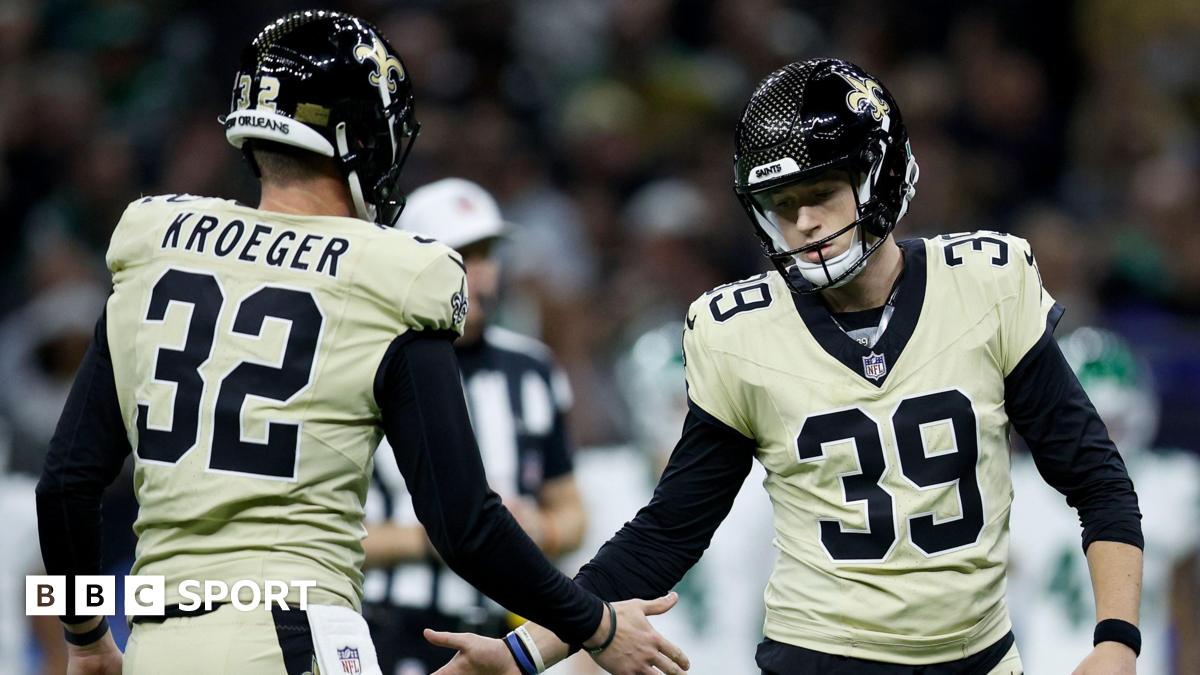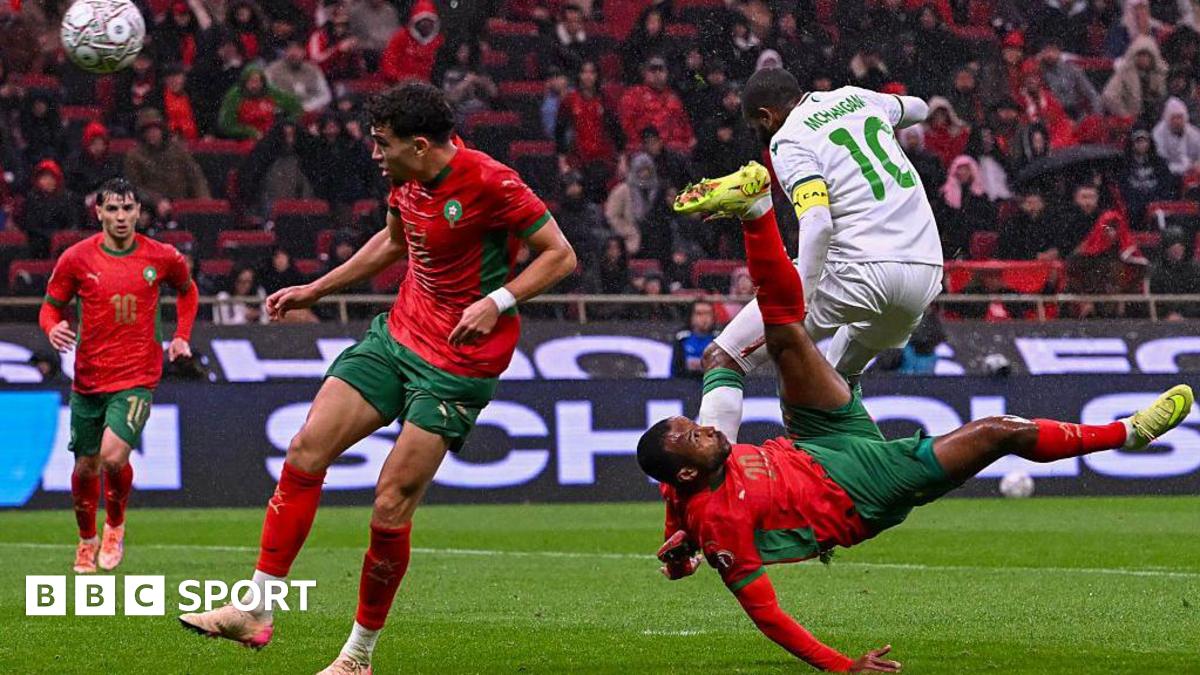| Host nation: Qatar Dates: 20 November-18 December Coverage: Live on BBC TV, BBC iPlayer, BBC Radio 5 Live, BBC Sounds and the BBC Sport website and app. Day-by-day TV listings – Full coverage details |
England meet reigning champions France on Saturday in a tantalising World Cup quarter-final that will feature key battles across the pitch.
The first major tournament knockout match between the two nations promises to be a high-quality contest at Qatar’s Al Bayt Stadium, and the outcome may be determined by the finest detail.
But how exactly might the game be won? BBC Sport takes a look…
A tough match for right-sided defenders
When considering how to stop France, the focus, naturally, is on Kylian Mbappe.
It’s certainly no secret that containing the Paris St-Germain forward, who has either scored or assisted France’s past seven World Cup goals, will be key to England’s hopes of reaching consecutive semi-finals, having also made the last four of Russia 2018.
France are unbeaten in Mbappe’s 13 starts at major tournaments – winning all nine at the World Cup – and he has been directly involved in 12 goals in those fixtures.
An irreplaceable influence, he has been vital to France’s attack and leads his team in a host of offensive metrics including shots (20), open play attacking sequence involvements (36) and opposition penalty area touches (46).
There are similarities in the way England and France have created their opportunities, with both favouring attacks on the left.
The two sides have made 41% of their attacks down that side, while no players have created more chances for their respective teams than left-backs Theo Hernandez (nine) and Luke Shaw (six).
More than half of France’s opportunities have come from the left, where 26 chances have provided a total of five assists.
That’s compared with three assists from 11 left-sided chances for England, who could deploy Shaw – second only to Argentina talisman Lionel Messi for progressive passes – and either Phil Foden or Marcus Rashford against an out-of-position Jules Kounde at right-back.
Although it remains to be seen whether Gareth Southgate will choose to stay with a back four or shift to a three, there is no doubt England’s right-sided defenders – potentially both Kyle Walker and Kieran Trippier – are in for a busy night.
But Walker in particular will feel confident. The Manchester City defender has come up against Mbappe in the Champions League on three occasions, with the Frenchman restricted to an average of 0.7 shots per 90 minutes – significantly down on his 2022 World Cup average of 6.4.
The battle for midfield supremacy
Jude Bellingham’s superb performance for England in the 3-0 last-16 win over Senegal led team-mate Foden to predict the 19-year-old will one day be the best midfielder in the world.
Bellingham leads the tournament’s midfielders for duels won (26) and tackles won (11), and that disruptive aspect of his game will be crucial as he seeks to control a central area featuring the engine of 22-year-old Aurelien Tchouameni and the creativity of Antoine Griezmann 31.
The direct Tchouameni has carried the ball 812.6 metres – significantly more than Bellingham (531.6 metres) – while Griezmann has created the most chances (15) and big chances (five) among both squads.
Griezmann has also played the most passes into the box (36) and registered the highest expected assists value (2.67 xA) on either team, so limiting his influence in build-up phases will be key for England.
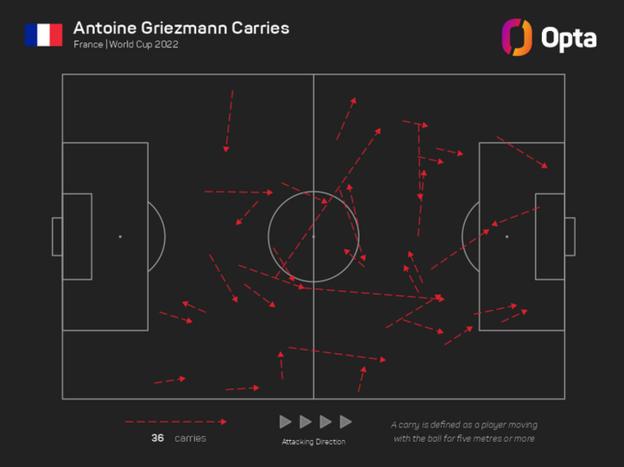
That job is likely to fall to Bellingham and Declan Rice, although Jordan Henderson may retain his place after Rice missed training because of illness earlier this week.
Bellingham has regained possession 23 times for his side in four matches – a leading midfield tally among the two sides – and transitional recoveries in particular will be important. While England (38) lead France (29) for high turnovers, one in six of those for France ends in a shot.
But England will also look to unleash one of their most creative players whenever possible.
Only Shaw and Harry Kane have offered greater creativity for England than Bellingham, who has so far played seven passes into the box and became the first teenager to assist in a World Cup knockout stage game in that standout Senegal showing.
A tale of two strikers
Not long after Olivier Giroud became France’s all-time leading men’s goalscorer against Poland on Sunday, England skipper Harry Kane opened his account in Qatar.
Giroud, with three goals in as many starts, and Kane both stand on 52 international goals, with the Tottenham striker now just one short of Wayne Rooney’s all-time Three Lions record.
Kane has marginally overperformed his expected goals (xG) value of 0.9 from his four chances to date, but it is in the build-up where he has been most effective for his team.
Leading the way in Qatar with three assists among five chances created, his role in Henderson’s goal (below) as he played the marauding Bellingham through against Senegal was typical of his wider influence.
Kane is far more important to England’s build-up than his France counterpart, recording more than double the number of touches (123) as Giroud (56) at this World Cup, and making the most progressive passes (14) among strikers at the tournament.
But just 6.5% of Kane’s touches have been inside the penalty area, compared with almost one in every five for Giroud.
And it is in the box where the Frenchman continues to deliver, with a shot conversion rate of 33.3% and three goals from an xG of 2.37.
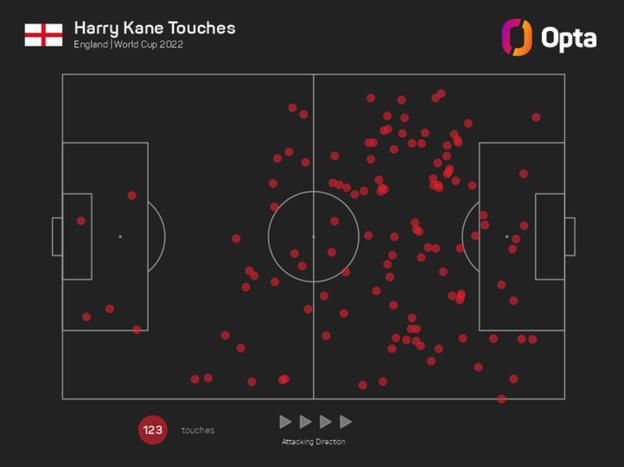
England’s most prolific shot-taker is in fact Rashford, whose eight attempts in 132 minutes of football equates to one every 17 minutes, followed by Bukayo Saka, Foden and Kane (five).
It is Kane’s ability to keep the opposition defence occupied and bring others into play in his fluid role which could prove pivotal.
After all, while eight of France’s nine goals have been scored by either Mbappe or Giroud, England’s 12 goals have been spread across eight players.

Get the latest results and goal notifications for any team at the Fifa World Cup by downloading the BBC Sport app: Apple – Android – Amazon


Get your daily dose of Fifa World Cup reaction, debate & analysis with World Cup Daily on BBC Sounds


